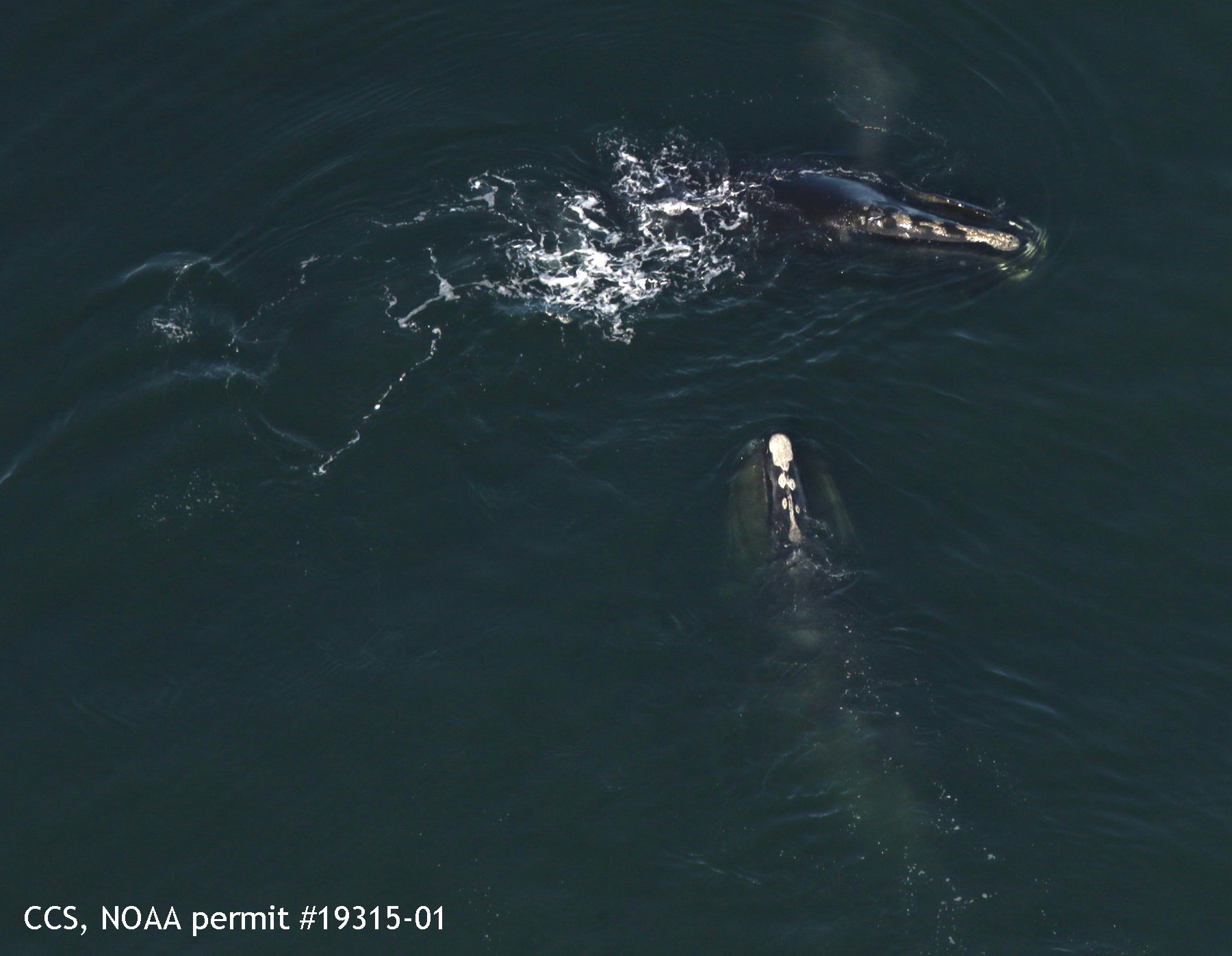

Mandatory Speed Limits in Effect for Cape Cod Bay
January 2, 2019

Two North Atlantic right whales, Arpeggio (#2753), top, and #2480, bottom, in Cape Cod Bay on December 11, 2018. #2480 can be seen feeding just below the surface, filtering copepods through their baleen plates. The sex of #2480 is unknown as is the identity of their mother. #2480 was first sighted in 1994 off the coast of Georgia and has only been sighted 23 times since then, a low number for such a long sighting history. We would love to know where this whale goes - and where they were between the fall of 2011 and the spring of 2016 when there were no sightings.
credit: Center For Coastal Studies, permit #19315-01
The Seasonal Management Area (SMA) in Cape Cod Bay that requires large ships to travel 10 knots or less took effect on January 1st and will be in place until May 15th. The SMA joins two others that are already active in the Mid-Atlantic and Southeast US. Aerial surveys in Cape Cod Bay began early on December 11th and researchers have made 23 sightings from December 11th to December 30th. Nine whales were sighted on December 11, 3 on December 14, 7 on December 19, 1 on December 20 and three on December 30.
Researchers at the Center for Coastal Studies identified many of the individual North Atlantic right whales that were sighted including Meridian (#1403), #2480, Marble (#2602), #2910, Arpeggio (#2753) (the whale featured on the header image on our website), #4190, Platypus (#3420), #4310, #2713, Flare (#4092), Cello (#1820), and Ruffian (#3530), a well-known North Atlantic right whale who has survived two severe entanglements in fishing gear. He was rescued in early 2017 in Georgia from 450 feet of rope and a 135 pound crab trap that he was forced to drag all the way from Canada so we are particularly glad to see him doing well. Video of his rescue can be found here.
In light of these sightings, a voluntary speed restriction was put in place in mid-December but voluntary restrictions are not good enough. We hope that the results from the surveys showing their arrival in the bay in December can at least get regulators at the NOAA to start the SMA on December 1st next year instead of January 1st. And, although the SMA's are better because they're mandatory, they need to be expanded beyond their current range.
More Information:
Speed Restrictions Implemented on East Coast - 12/18/2018
North Atlantic Right Whales Return to Cape Cod Bay - 12/14/2018